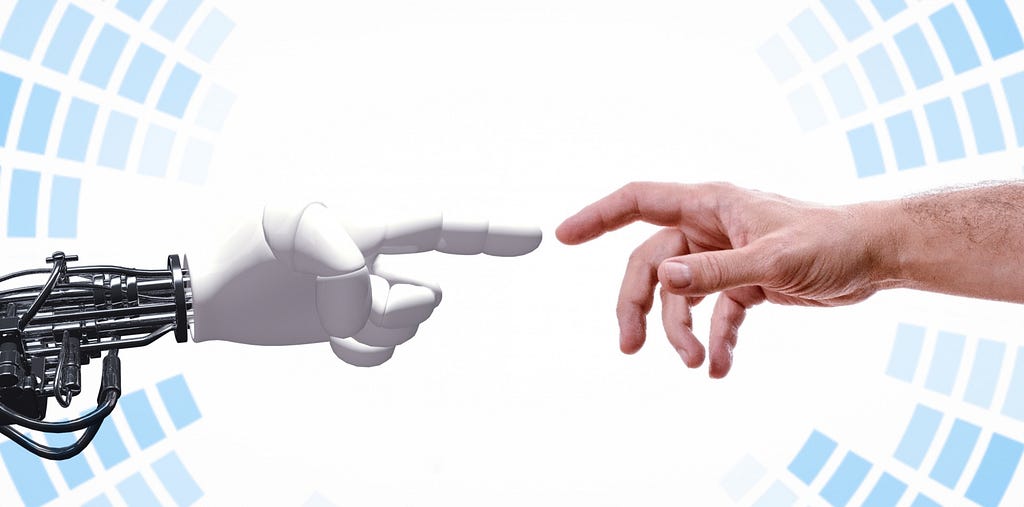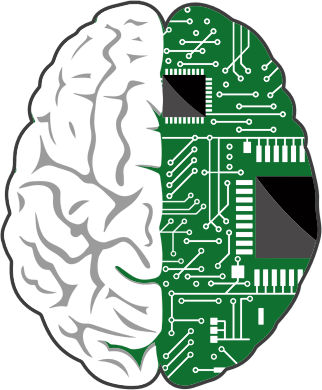
AI Policy: Role of Technology
Last Updated on November 2, 2022 by Editorial Team
Author(s): Rajesh Verma
Originally published on Towards AI the World’s Leading AI and Technology News and Media Company. If you are building an AI-related product or service, we invite you to consider becoming an AI sponsor. At Towards AI, we help scale AI and technology startups. Let us help you unleash your technology to the masses.
The Human-AI interface and its consequences.
Data and judgment complement AI as core elements of decision-making in war and national security in general. The human-like behavior of AI-based technology raises questions regarding the interfaces between science, technology, and society. The deployment of these technologies in the field of sustainability, healthcare, scientific discoveries, and defense can make a huge difference in benefits realization.
In this article, we will explore the governance process that can make the AI output trustworthy, the role of data and human judgment in the decision-making process, and developments in brain science that has a promising future but needs to be governed.
The Human-AI interface is an essential factor in the value realization of AI.

AI technology has the potential to unlock capabilities to gain operational and competitive advantages. With the potential also comes risks that have hindered adoption and made it economically unviable. An appropriate AI governance practice is needed to harness the growth potential and mitigate the risk without becoming a hindrance.
The Information Technology (IT) team plays a crucial role in realizing AI capabilities. IT organizations have IT governance models. These IT governance models can be decomposed into structural, procedural, and relational practices to govern data, data quality, and data security. By automating mundane, complex, and repetitive tasks, humans can interface with the output of AI for better decision-making.
Streamlining processes, de-fragmenting toolsets, and adopting a pre-active toolset to address issues at the onset provide the basis for building trust in AI. This ground-up approach will significantly improve the confidence and quality of data, thus improving processes and AI output.
AI will make prediction cheaper and improve decision-making but increase the value of clean data & judgment.

Data and judgment complement AI as core elements of decision-making in war and national security in general. The predictive capability of AI can optimize the utility of a given function. But the determination of what utility function must be optimized is based on human judgment.
Unlike the private sector, these aspects might not be as pristine and narrow, necessitating a human to take the AI prediction as one source of information to make a well-informed decision. The focus on AI complements the human aspect of judgment, which can be contested, and the value of data, the quality of which must be proven, makes AI-driven wars more protracted and confusing.
The success of AI in the commercial sector is attributed to clean data, a clear sense of quantifiable judgment, and institutional governance models. There are no institutional bodies governing war, the data can be purely contextual, and the judgment must include factors that do not present on the battlefield, like political dialogue, economic viability, etc. The importance of humans is key to the policy-based decision-making process, where AI prediction is just one source of information.
AI led development in the sciences, in the hands of a bad actor or ungoverned use can have severe adverse outcomes.

The advancement in the field of AI is making possible rapid development in the field of brain science. The deployment of these technologies in the field of sustainability, healthcare, scientific discoveries, and defense can have enormous societal benefits.
However, this advancement in the hands of a bad actor or ungoverned use can have severe adverse outcomes like intentional abuse, misfiring of an autonomous weapon, and improper cognitive enhancements by brain-computer enhancement.
Policy-based governance of the remarkable innovation will have to be designed to manage and monitor the use of AI and brain science research. The human-like behavior of AI-based technology raises questions regarding the interfaces between science, technology, and society. The ethical and governance aspect must be framed upstream in the research process, with the general public’s input. The level of autonomy to be granted to an AI agent must be determined based on continuous learning and engagement from diverse participants.
Conclusion
Addressing the political, operational, and moral consequences of replacing people, machines, and processes with automated systems is crucial. These, along with cybersecurity & confidentiality of classified information, must be treated as a complementary domain of AI to safeguard against espionage and covert action.
As mentioned in AI Policy: Impact on National Security, the multidimensional nature and impact of AI and related innovation makes it extraordinarily challenging and demands a multi-pronged approach with a sense of urgency.
AI policy is complex and will have expansive coverage from defense, food, water, gas, power, health, finance, transportation, research, supply chain, government, and many other activities that humans perform. Therefore it is essential for policy to evolve with a focus on the Human-AI interface.
References
- Papagiannidis, Emmanouil, Ida Merete Enholm, Chirstian Dremel, Patrick Mikalef, and John Krogstie. 2022. “Toward AI Governance: Identifying Best Practices and Potential Barriers and Outcomes.” Information Systems Frontiers : A Journal of Research and Innovation. Dordrecht, Netherlands : Kluwer Academic Publishers. https://doi.org/10.1007/s10796-022-10251-y.
- Goldfarb, Avi, and Jon R. Lindsay. 2021. “Prediction and Judgment: Why Artificial Intelligence Increases the Importance of Humans in War,” International Security 46, 46, no. 3: 7–50. https://doi.org/10.1162/isec_a_00425.
- Doya, Kenji, Arisa Ema, Hiroaki Kitano, Masamichi Sakagami, and Stuart Russell. 2022. “Social Impact and Governance of AI and Neurotechnologies,” Neural Networks 152, 152: 542–54. https://doi.org/10.1016/j.neunet.2022.05.012.
AI Policy: Role of Technology was originally published in Towards AI on Medium, where people are continuing the conversation by highlighting and responding to this story.
Join thousands of data leaders on the AI newsletter. It’s free, we don’t spam, and we never share your email address. Keep up to date with the latest work in AI. From research to projects and ideas. If you are building an AI startup, an AI-related product, or a service, we invite you to consider becoming a sponsor.
Published via Towards AI
Take our 90+ lesson From Beginner to Advanced LLM Developer Certification: From choosing a project to deploying a working product this is the most comprehensive and practical LLM course out there!
Towards AI has published Building LLMs for Production—our 470+ page guide to mastering LLMs with practical projects and expert insights!

Discover Your Dream AI Career at Towards AI Jobs
Towards AI has built a jobs board tailored specifically to Machine Learning and Data Science Jobs and Skills. Our software searches for live AI jobs each hour, labels and categorises them and makes them easily searchable. Explore over 40,000 live jobs today with Towards AI Jobs!
Note: Content contains the views of the contributing authors and not Towards AI.














